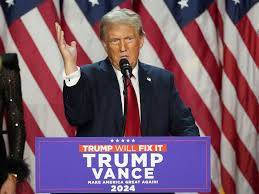A significant debate has emerged among supporters of U.S. President-elect Donald Trump concerning the future of the H-1B visa program, which permits U.S. companies to employ foreign workers in specialized occupations. This internal conflict highlights differing perspectives within the "Make America Great Again" (MAGA) movement regarding immigration policies and economic growth.
**Overview of the H-1B Visa Program**
The H-1B visa program, established in 1990, allows U.S. employers to temporarily hire foreign workers in specialty occupations requiring specialized knowledge and a bachelor's degree or higher. Annually, the U.S. grants 65,000 new H-1B visas, with an additional 20,000 available for individuals holding advanced degrees from U.S. institutions. The program is heavily utilized by the technology sector, with companies like Amazon, Google, and Tesla relying on it to fill roles in software development, engineering, and computer science. Notably, approximately 70% of H-1B visa recipients are from India, and about 10% are from China.
**Internal Dispute Among Trump Supporters**
The current debate was ignited by Laura Loomer, a far-right personality and Trump supporter, who criticized the appointment of an adviser on artificial intelligence advocating for an increase in foreign skilled workers to maintain U.S. competitiveness in technology industries. Loomer's criticism was met with responses from prominent tech industry figures, including Elon Musk, CEO of SpaceX and Tesla, who defended the H-1B program as essential for U.S. industrial and economic growth. Musk emphasized the scarcity of highly talented and motivated engineers in the U.S., describing the H-1B program as critical "for those who want America to win." He further pledged to "go to war on this issue," underscoring his commitment to the program.
Vivek Ramaswamy, a former presidential candidate selected to work alongside Musk on a government efficiency advisory board, acknowledged the program's flaws but opposed its complete removal. He advocated for merit-based visa allocations, suggesting that the current system does not adequately prioritize excellence. Ramaswamy's comments, particularly his critique of American culture for venerating mediocrity over excellence, further fueled the debate within the MAGA movement.
**President-elect Trump's Position**
President-elect Trump has weighed in on the issue, expressing support for the H-1B program. He stated, "I have many H-1B visas on my properties. I've been a believer in H-1B." This stance marks a departure from his previous criticisms of the program as "very bad" and "unfair" to U.S. workers during his first term. The shift suggests a potential reevaluation of immigration policies concerning skilled foreign workers in the upcoming administration.
**Implications of the Debate**
The internal conflict among Trump supporters over the H-1B visa program underscores a broader tension between protectionist policies aimed at prioritizing American workers and the economic realities of industries that rely on skilled foreign labor. Tech industry leaders argue that the program is vital for innovation and maintaining global competitiveness, while opponents within the MAGA movement view it as detrimental to domestic employment opportunities.
This debate may influence the policy direction of the incoming administration, potentially affecting the tech industry's access to global talent and the broader U.S. economy. The outcome could also signal how the administration balances nationalist sentiments with the demands of a rapidly evolving technological landscape.
**Conclusion**
The H-1B visa program has become a focal point of contention within President-elect Trump's support base, reflecting divergent views on immigration and economic policy. As the administration prepares to take office, the resolution of this debate will have significant implications for U.S. immigration policy, the tech industry's workforce composition, and the nation's approach to balancing domestic employment concerns with the need for specialized skills in a competitive global market.



No comments yet
Be the first to share your thoughts!